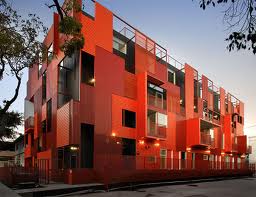The segment of the housing industry that caters to those home buyers and renters who are 55+ years old saw gradual but steady improvement in 2011. This trend is expected to continue throughout 2012 as more baby boomers turn 55 and seek new homes and communities that offer the lifestyle they desire. However, since the conditions of the current overall housing market are limiting their ability to sell their existing homes, this market is not recovering as quickly as might have been expected.
Like the overall single-family housing market, the 55+ housing segment is facing a slow but steady recovery. "NAHB is projecting that the number of housing starts in 55+ communities will increase 18 percent to 53,200 units in 2012, and another 25 percent, to 66,600 in 2013," said Paul Emrath, NAHB's vice president of survey and housing policy research.
Emrath said the multifamily segment of the 55+ housing market is doing particularly well, with an estimated 57% increase to 21,300 starts in 2011, and further increases in the forecast of 25,400 new apartments in 2012 and 29,100 in 2013.
According to NAHB, the 55+ housing market should continue to gradually improve over the next few years. "Nevertheless, this market remains fragile as many people in this sector who would like to purchase a new home are having difficulties selling their existing homes," noted Emrath. "The issues constraining their ability to sell are the same issues restraining the overall single-family housing market - low appraisals, a large supply of foreclosures and tighter mortgage lending criteria."
Knowing their customer base is important for builders' success in the current economic climate. "The 55+ builders who are doing well in these challenging times are innovative and creative and are in touch with their customer base," said W. Don Whyte, president of Kennecott Land in South Jordan, Utah, and incoming chairman of NAHB's 50+ Housing Council. "Successful builders also continually conduct market research on buyer's preferences and needs."
"Meeting the needs of buyers in the 55+ market involves having a more focused and targeted strategy on how to design, build and market new homes," said Whyte. "Successful builders and developers in the current market will encompass this approach." BD+C
Related Stories
Museums | Aug 11, 2010
Design guidelines for museums, archives, and art storage facilities
This column diagnoses the three most common moisture challenges with museums, archives, and art storage facilities and provides design guidance on how to avoid them.
| Aug 11, 2010
Broadway-style theater headed to Kentucky
One of Kentucky's largest performing arts venues should open in 2011—that's when construction is expected to wrap up on Eastern Kentucky University's Business & Technology Center for Performing Arts. The 93,000-sf Broadway-caliber theater will seat 2,000 audience members and have a 60×24-foot stage proscenium and a fly loft.
| Aug 11, 2010
Citizenship building in Texas targets LEED Silver
The Department of Homeland Security's new U.S. Citizenship and Immigration Services facility in Irving, Texas, was designed by 4240 Architecture and developed by JDL Castle Corporation. The focal point of the two-story, 56,000-sf building is the double-height, glass-walled Ceremony Room where new citizens take the oath.
| Aug 11, 2010
Carpenters' union helping build its own headquarters
The New England Regional Council of Carpenters headquarters in Dorchester, Mass., is taking shape within a 1940s industrial building. The Building Team of ADD Inc., RDK Engineers, Suffolk Construction, and the carpenters' Joint Apprenticeship Training Committee, is giving the old facility a modern makeover by converting the existing two-story structure into a three-story, 75,000-sf, LEED-certif...
| Aug 11, 2010
Utah research facility reflects Native American architecture
A $130 million research facility is being built at University of Utah's Salt Lake City campus. The James L. Sorenson Molecular Biotechnology Building—a USTAR Innovation Center—is being designed by the Atlanta office of Lord Aeck & Sargent, in association with Salt-Lake City-based Architectural Nexus.
| Aug 11, 2010
San Bernardino health center doubles in size
Temecula, Calif.-based EDGE was awarded the contract for California State University San Bernardino's health center renovation and expansion. The two-phase, $4 million project was designed by RSK Associates, San Francisco, and includes an 11,000-sf, tilt-up concrete expansion—which doubles the size of the facility—and site and infrastructure work.
| Aug 11, 2010
Goettsch Partners wins design competition for Soochow Securities HQ in China
Chicago-based Goettsch Partners has been selected to design the Soochow Securities Headquarters, the new office and stock exchange building for Soochow Securities Co. Ltd. The 21-story, 441,300-sf project includes 344,400 sf of office space, an 86,100-sf stock exchange, classrooms, and underground parking.
| Aug 11, 2010
New hospital expands Idaho healthcare options
Ascension Group Architects, Arlington, Texas, is designing a $150 million replacement hospital for Portneuf Medical Center in Pocatello, Idaho. An existing facility will be renovated as part of the project. The new six-story, 320-000-sf complex will house 187 beds, along with an intensive care unit, a cardiovascular care unit, pediatrics, psychiatry, surgical suites, rehabilitation clinic, and ...
| Aug 11, 2010
Colonnade fixes setback problem in Brooklyn condo project
The New York firm Scarano Architects was brought in by the developers of Olive Park condominiums in the Williamsburg section of Brooklyn to bring the facility up to code after frame out was completed. The architects designed colonnades along the building's perimeter to create the 15-foot setback required by the New York City Planning Commission.








